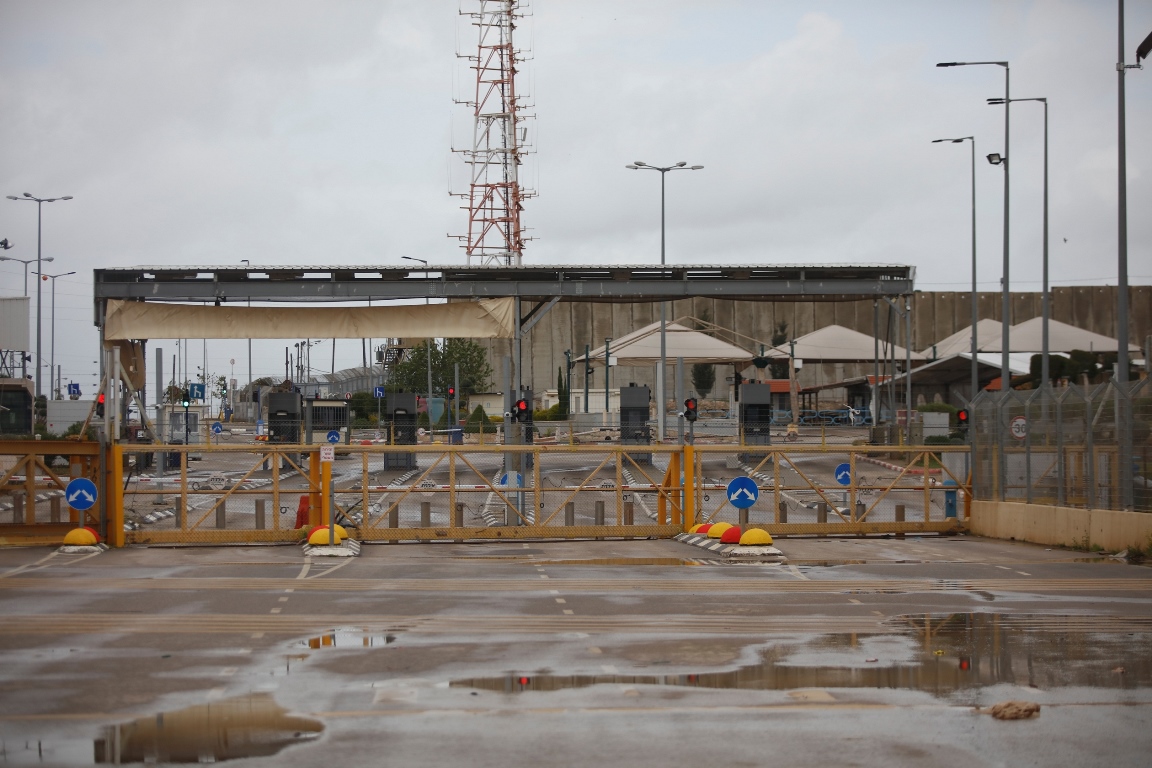Palestinian and regional civil society organizations today welcomed the report of the United Nations Special Rapporteur addressing Israel’s collective punishment policy.
On 14 July, Michael Lynk, Special Rapporteur on the situation of human rights in the Palestinian territories occupied since 1967, published his annual report addressing Israel’s illegal policies of collective punishment targeting the Palestinian people.
Emphasizing Israel’s failure to uphold its legal obligations and underlining Israel’s reliance on collective punishment as a “prominent instrument in its coercive toolbox of population control,” Lynk called on Israel to “[e]nd all measures amounting to collective punishment, including an end to the closure of Gaza, all restrictions on freedom of movement across the Occupied Palestinian Territory, the punitive demolitions of homes, the punitive residency revocations, the cutting of benefits, the punitive closures of towns and all delays in returning bodies for burial.”
The report provided legal analysis on collective punishment and highlighted policies and practices amounting to illegal collective punishment used by Israel, the Occupying Power, including the 13-year-long closure on the Gaza Strip, punitive house demolitions, withholding of bodies, and restrictions of freedom of movement.
Shahd Qaddoura, Legal Research and Advocacy Assistant at Al-Haq, welcomed the report stating, “Professor Lynk’s report examines one of Israel’s well-worn policies of imposing collective punishment measures as a tool of repression, control and domination against the Palestinian people to maintain its settler-colonial and apartheid regime. As Palestinians continue to suffer from the absence of international justice and accountability, including at the International Criminal Court, Israel continued to benefit from an unlawfully created culture of impunity.”
According to Budour Hassan, Legal Researcher at the Jerusalem Legal Aid and Human Rights Center, “among the most important contributions of this report is showing how Israel’s collective punishment measures, including punitive demolitions and the withholding of bodies, have been greenlighted and legitimized by Israeli courts. The Israeli High Court of Justice has, as demonstrated by the examples brought up by Professor Lynk, played a central role in maintaining and sugar-coating the occupation and its repression.” As such, she stressed that an “urgent need for international accountability and for an end to the state of impunity which Israel has continued to enjoy” is accentuated.
On the unlawful closure of the occupied Gaza Strip, Nuriya Oswald, International Legal and Advocacy Director of Al Mezan, stressed that “for 13 years, Palestinians in Gaza have been subjected to Israeli practices and policies of collective punishment, namely the unlawful closure, undermining every aspect of their lives and denying them their inalienable rights. This report provides further recognition of these illegal policies.”
Concluding his report, Lynk stressed that collective punishment, in all cases, is prohibited under international law. He maintains that “like torture, there are no permissible exceptions to the use of collective punishment in law. And, like torture, the use of collective punishment flouts law and morality, dignity and justice, and stains all those who practice it.”
Finally, Lynk presented a list of recommendations, including:
1. The Government of Israel comply with international law and the international consensus by bringing a full and speedy end to its 53-year-old occupation of the Palestinian territory.
2. The Government of Israel end all measures amounting to collective punishment, including an end to: the closure of Gaza, all restrictions on freedom of movement across the Occupied Palestinian Territory, the punitive demolitions of homes, the punitive residency revocations, the cutting of benefits, the punitive closures of towns and all delays in returning bodies for burial.
3. In line with the international legal obligations respecting state responsibility, the international community should take all measures, including countermeasures and sanctions, necessary to ensure the respect by Israel of its duty under international law to end the occupation.
The international community has regularly condemned Israel’s policy of collective punishment; however, the response has rarely risen above the level of verbal condemnation.
Nada Awad, International Advocacy Officer of Cairo Institute for Human Rights Studies, emphasized that “the Special Rapporteur, the ICRC, former UN Secretary Generals, High Commissioner Bachelet, treaty bodies, have all called on Israel to put an end to its illegal collective punishment policies. In the UPR review of Israel in 2018, several UN member states called on Israel to put an end to collective punishment, including Germany, Namibia, and Malaysia.”
As such, she stressed that “the international community must take action to put an end to the illegal and inhumane Israeli policies of collective punishment.”



